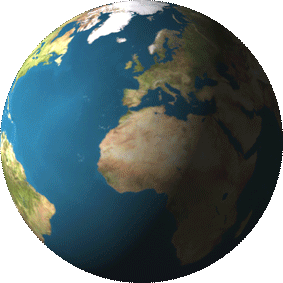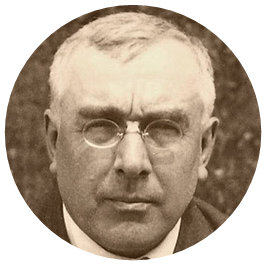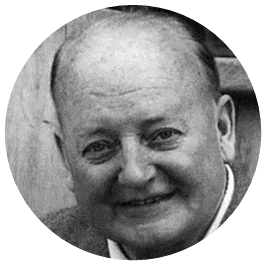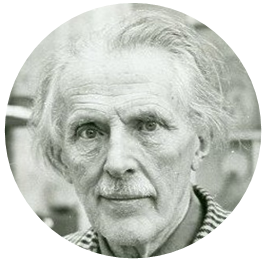


 |
 |
 |

Starting with Master Gurdjieff (1872 – 1949), the Fourth Way also had the following teachers.
 |
Peter D. OuspenskyPyotr Demianovich Ouspenskii (Пётр Демья́нович Успе́нский in Russian script) was born on 5 March 1878 in Kharkov (Kharkov Governorate, Russian Empire; nowadays part of Ukraine). From 1890, he studied at the Second Moscow Gymnasium, a government school attended by boys aged 10 to 18. At the age of 16, he was expelled from school for painting graffiti on the wall in plain sight of a visiting inspector. From then on, he was more or less on his own. In 1906, he worked in the editorial office of the Moscow daily paper The Morning. In 1907, P.D. Ouspensky became interested in Esoterism. His book ‘The Fourth Dimension’ was published in 1909, followed by ‘Tertium Organum’ (Latin for ‘The Third Organ’) in 1912. In the autumn of 1913, aged 35, he journeyed to the East in search of the miraculous. He visited Theosophists in Adyar in Tamil Nadu, India, but was forced to return to Moscow after the beginning of World War I. In 1915 in Moscow, he met Master Gurdjieff and became his student. In 1917, he married another Fourth Way student. Her birth name was Sophia Grigorievna Volochine. She was also born in Kharkov, nine months after him, on 8 November 1878. Age 16, she married a student with whom she got two children (a son, who died at young age, and a daughter, Lenotchka Savitsky). After divorcing this student, she married a mining engineer, whose last name was Maximenko. Known as madame Maximenko, she met Master Gurdjieff in 1913. In February 1918, Master Gurdjieff went to Essentuki, and madame Ouspensky and her husband joined him there, as well as her daughter, along with some 40 fellow students. When Master Gurdjieff left for Tbilisi, Georgia, the following year (1919), P.D. Ouspensky, his wife and her daughter stayed in Essentuki. In February 1920, they went to Constantinople. There they met again with Master Gurdjieff and his retinue. Madame Ouspensky decided to stay with Master Gurdjieff, who then first traveled first to Germany, and later to France. In 1921, P.D. Ouspensky came to London, England, where he became known as Peter D. Ouspensky. There he set up a Fourth Way organization of his own. After Master Gurdjieff founded the ‘Institute for the Harmonious Development of Man’ at Fontainebleau-Avon (southeast of Paris, France) in 1922, madame Ouspensky was one of six people appointed by Master Gurdjieff to act as Assistant Instructors there. In 1924, Master Gurdjieff sent her to assist her husband in England, where she became a teacher in her own right. She developed Parkinson’s disease in the summer of 1939. In 1941, together with her husband, she left the UK to live in the USA where she taught, despite being bedridden, at Franklin Farms, Mendham, New Jersey, USA. Aged 69, Peter D. Ouspensky died on 2 October 1947 in Lyne Place, Surrey, England, UK. After madame Ouspensky got permission from Master Gurdjieff, P.D. Ouspensky’s best book was published posthumously in 1949 in New York (USA), titled In Search of the Miraculous. Aged 83, madame Ouspensky died on 30 December 1961 at Mendham, New Jersey. |
 |
Maurice NicollHenry Maurice Dunlop Nicoll was born on 19 July 1884 in Kelso, Scotland, UK, as the son of William Robertson Nicoll (10 October 1851 – 4 May 1923), a minister of the Free Church of Scotland, and Isabella Dunlop (1857 – 1894). He spent his childhood and early youth in Hampstead near London. Maurice Nicoll became a neurologist and psychiatrist. In 1920, he married Catherine Champion-Jones, and spent part of his honeymoon with Carl Jung (1875 – 1961) and his wife Emma Rauschenbach (1882 – 1955). In 1921, Jane, the daughter of Maurice and Catherine, was born (and Carl Jung became her godfather). Later that year, in October 1921, Maurice Nicoll met P.D. Ouspensky, and became a student of the Fourth Way. After meeting with Master Gurdjieff in the spring of 1922, he and his family moved to the Institute for the Harmonious Development of Man (southeast of Paris) in the fall of 1922. He is best known for his Psychological Commentaries on the Teaching of Gurdjieff and Ouspensky, a five-volume collection of more than 500 talks given and distributed to his study groups in and around London from March 1941 to August 1953. Aged 69, Maurice Nicoll died on 30 August 1953 in Great Amwell, England. |
 |
John G. BennettJohn Godolphin Bennett was born on 8 June 1897 in London, England, as the son of Basil Bennett (a traveler, linguist, and adventurer from the UK born about 1871) and Annie Caroline Craig from the USA (born about 1869), who met in Florence, Italy. He had an extraordinary talent for languages, as he studied Hindu, Buddhist, Islamic and Christian sacred texts in their original languages, and spoke to many spiritual teachers in their native tongue. He also excelled in sports and mathematics. In the World War I, at the age of nineteen, Bennett served in the Royal Engineers, with responsibility for signals and telegraphy. In the closing months of this Great War, Bennett undertook an intensive course in the Turkish language at the School of Oriental and African Studies, London. Shortly after World War I, John G. Bennett married Evelyn. While he was posted to Constantinople, their daughter Ann was born (in August 1920). In Constantinople, part of Bennett’s job was to monitor displaced Russians. Among them were G.I. Gurdjieff and P.D. Ouspensky, whom he met in 1920. Very much impressed by what Master Gurdjieff said to him, John G. Bennett later on, in the summer of 1923, spend three months at the ‘Institute for the Harmonious Development of Man’ at the Château Le Prieuré in Fontainebleau-Avon, southeast of Paris. Next, Bennett joined Ouspensky’s groups in the UK. In 1924, his first wife Evelyn sued for divorce. He later married the 20 years older Winifred Beaumont (1875 – 1958), an English woman living in Turkey while he was posted to Constantinople. In 1941, when Ouspensky left the UK to live in the USA, Bennett was running his own study groups and giving talks on the Fourth Way. The groups continued and expanded in London throughout World War II. Bennett began writing and developing his own ideas in addition to Gurdjieff’s. For this, Ouspensky repudiated him in 1945, also accusing him of plagiarism. In 1946, Bennett and his second wife founded the non-profit ‘Institute for the Comparative Study of History, Philosophy and the Sciences’ at Coombe Springs, a seven-acre estate in Kingston upon Thames, Surrey, UK, which had housed research laboratories. In 1948, after Ouspensky had died (in 1947), Bennett went to the USA and met Ouspensky’s wife, through whom he learned that Master Gurdjieff was still alive, living in Paris, France. Though it was 25 years since they had last met (due mainly to Ouspensky’s longstanding veto against Master Gurdjieff to members of his groups), Bennett quickly decided to renew contact. In the 18 months before Master Gurdjieff’s death (which occurred on 29 October 1949), Bennett visited him frequently. He also continued his responsibilities towards the group work at Coombe Springs. Aged 77, John G. Bennett died on Friday 13 December 1974 at Sherbourne, Warwickshire, England, UK. |
© Pateo.NL : This page was last updated on 2022/10/10.